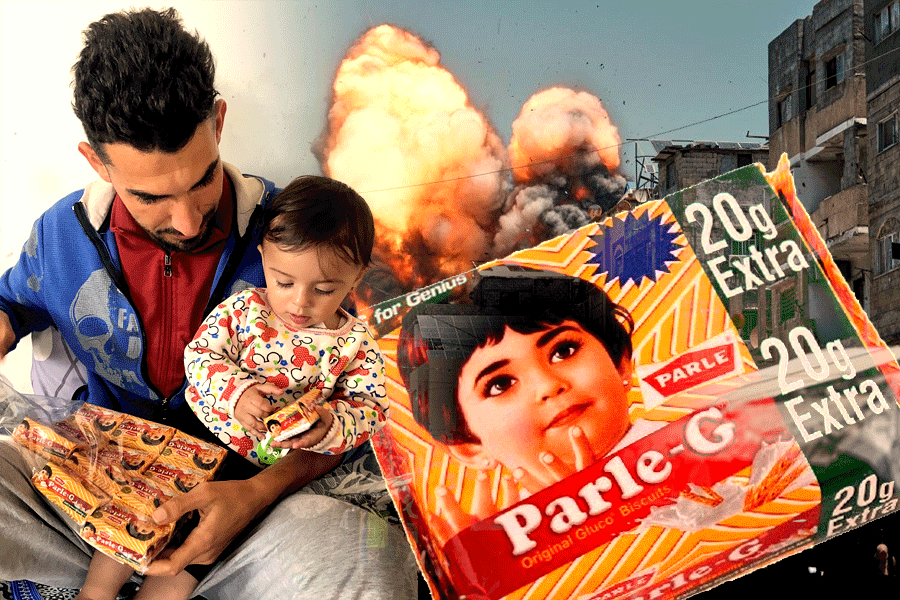Parle-G biscuits – a staple in Indian households known for their association with chai breaks and quick snacks – were never seen as a luxury item. But in famine-stricken Gaza, the biscuit is being sold at nearly 500 times its original cost, according to a report on NDTV.
A recent viral post from Gaza revealed the shocking price hike, with a man claiming that a packet of Parle-G — manufactured by Mumbai-based Parle Products — was being sold for over 24 euros (approximately INR 2,342). The revelation stunned netizens familiar with Parle-G’s status as one of India’s most affordable food items.
"After a long wait, I finally got Ravif her favorite biscuits today. Even though the price jumped from 1.5 euros to over 24 euros, I just couldn't deny Rafif her favorite treat," the post read.
Gaza’s malnutrition crisis worsens
According to a Reuters report citing UN data, the rate of acute malnutrition among young children in Gaza has nearly tripled since an earlier ceasefire this year, when aid briefly flowed more freely.
The report comes amid global scrutiny of aid distribution in Gaza, especially after deadly shootings near the area where a new US-backed aid delivery system is in operation.
Following the end of a two-month ceasefire in March, Israel imposed an 11-week blockade on aid entering Gaza. Though partially lifted, restrictions remain in place. Israel insists on vetting all incoming aid and accuses Hamas of diverting supplies — a claim Hamas denies.
An analysis conducted in the second half of May by the UN-led "nutrition cluster" — a coalition of UN and aid agencies — found that “5.8% of nearly 50,000 children under five” screened showed signs of acute malnutrition. This marks a significant rise from “4.7% in early May” and nearly “three times the rate recorded in February”, during a temporary lull in fighting. While the February figure wasn't disclosed, the rising trend is deeply concerning.
The report also noted a rise in “severe acute malnutrition”, a dangerous condition that weakens the immune system. Treatment centres in northern Gaza and Rafah have shut down, leaving critically ill children without access to lifesaving care.
Though reasons for these closures weren't specified, many medical centres have been destroyed or rendered inoperable during the conflict. Israel claims Hamas uses them for military operations — something the group denies.
A Palestinian minister recently reported “29 starvation-related deaths” among children and the elderly in just a few days.
Why Parle-G strikes a chord
Launched in 1938, Parle-G has deep emotional and cultural resonance in India. It rose to popularity during the Swadeshi movement as an affordable alternative to British biscuits and has since become one of the most recognised brands in Indian households.
Its affordability has been maintained over the decades through tactics like "shrinkflation" — reducing package size while keeping prices stable. A Rs 5 pack that once contained 100 grams now holds about 55 grams, but remains one of the cheapest packaged foods in the country.
In 2011, Parle-G became the world’s highest-selling biscuit by volume, according to Nielsen. By 2013, it was the first Indian FMCG brand to surpass Rs 5,000 crore in retail sales.










